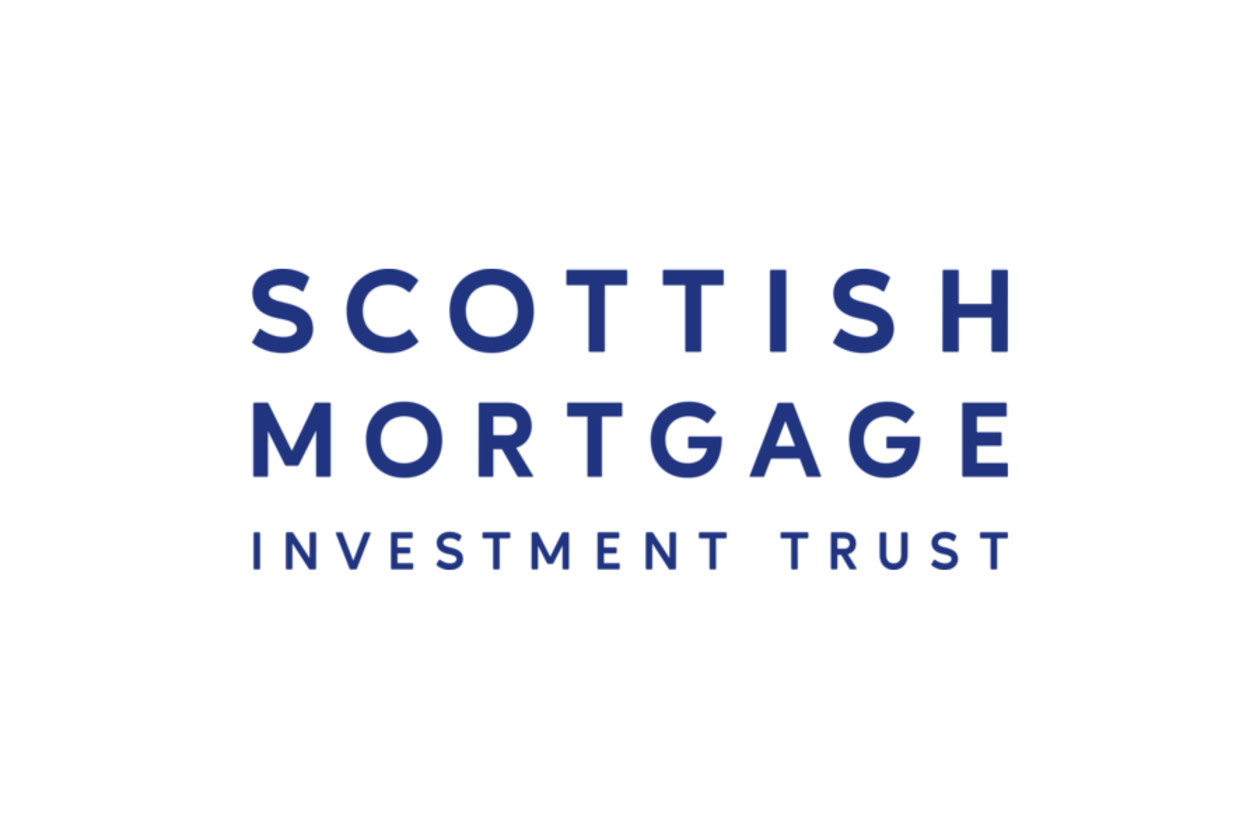The managers hunt for private and public companies with high-growth potential
Tom Slater has been involved in managing the trust for almost 15 years and is supported by deputy manager Lawrence Burns who joined him in March 2021
Long-term performance has been strong, but it has been a bumpy ride
How it fits in a portfolio
Scottish Mortgage Investment Trust is managed by Baillie Gifford. It aims for long-term growth by investing in some of the stock market’s most exciting companies. From healthcare to transportation, the trust provides exposure to some of the most disruptive businesses around the world. This includes both public and higher-risk private companies. With a focus on growth, the trust could work well alongside others investing in out-of-favour ‘value’ companies to form part of an adventurous investment portfolio. Investors in closed-ended funds should be aware the trust can trade at a discount or premium to Net Asset Value (NAV).
Manager
Tom Slater is a partner at Baillie Gifford and lead manager of the trust. He was joint manager alongside Anderson from 2015 after spending five years as deputy manager. He joined Baillie Gifford in 2000 and has spent time analysing both Asian and UK companies. He’s also Head of North American Equities and manages other global and US portfolios, including the Baillie Gifford American Fund. Given there is regional overlap and a shared investment philosophy across these strategies, we believe Slater can devote enough time to each.
Lawrence Burns was appointed deputy manager in March 2021 and continues to support Slater following Anderson’s retirement. He joined the firm in 2009 and has experience covering the UK, emerging markets, and managing global growth portfolios. He’s also a partner at Baillie Gifford.
The team also benefit from the wider resource available at Baillie Gifford, which consists of over 100 investment professionals.
Process
The managers believe that markets are driven by extreme events and success, which propels society forward. Their research suggests that only a few handful of companies generate wealth over the longer-term and these are the ones they seek to invest in. The trust is invested in a way that means it looks very different from the index and peers.
New ideas are generated from a wide range of sources such as industry specialists, roadshows and the expertise of colleagues at Baillie Gifford. The team then conduct detailed research into each potential company – they spend a lot of time building a deep understanding of a company’s business model, its quality of management and the growth potential of the industry they operate in. Typically, these are financially robust companies that have hard-to-replicate advantages over competitors. The managers are optimists and focus on what could go right and, if successful, how big could the opportunity be.
The managers are true long-term investors as they believe it’s the best way to capture the potential growth of the companies they invest in. At the end of April 2025, the trust is invested in 95 companies, Some of them have been held for over ten years, including technology firm Amazon, semiconductor firm ASML and electric car manufacturer Tesla.
This patient approach is well suited to investing in private companies (those not listed on the stock market). The trust can invest up to 30% of its assets in these unquoted companies (measured at the time of investment). Investors should be aware that investment in unquoted companies is higher risk and they can be considerably less liquid (more difficult to buy and sell) than those traded on established stock exchanges. At the end of April 2024, there were 51 unlisted companies in the trust, a marginal decrease from 53 companies the previous year. This makes up 26.2% of the trust’s assets.
53.5% of the trust is invested in North America, with the remainder split across Asia, Europe, South America and Africa and the Middle East. This will include some investments in higher-risk emerging markets. The managers view the trust’s sector allocation differently to most others, and in a way that expresses their view of the world. ‘Digitalisation of Commerce’ is the largest theme and is home to the likes of Amazon and Shopify. Other notable themes include, ‘The Future of Advertising and Entertainment’ and ‘Enablers of AI’. All have qualities in common, including the ability to cause dramatic change and disrupt the status quo.
Over the trust’s latest financial year, ending in March 2025, Slater made several changes to the portfolio. New investments include the Taiwanese semiconductor company TSMC. Slater believes that, with advancements in artificial intelligence (AI), demand for the world-leading chips manufactured by TSMC will remain strong and continue to grow. Chinese electric car maker BYD was also added. The company holds a strong position in the Chinese market and has demonstrated its ability to expand overseas, with revenue continuing to rise. Slater also made a small investment in the French luxury fashion company Hermès, believing the business possesses extraordinary pricing power that can facilitate future growth.
To pay for new investments, the manager sold a number of companies as well. This includes selling their long-term position in Chinese conglomerate Tencent. Slater thinks the regulatory and political challenges will make it difficult for Tencent to continue to grow. Also sold was Indian bank HDFC, German food meal-kit company HelloFresh and US video conference company Zoom.
The managers can use gearing (borrowing to invest), which can boost gains but also increases losses, so is a higher-risk approach. As at the end of May 2025 the gearing stood at 12%, which is lower than the previous year when gearing was 13%. They can invest in derivatives too, which if used also adds risk.
Culture
Scottish Mortgage was established in 1909 and is a member of the FTSE 100 index, home to the biggest companies in the UK stock market. The trust is managed by Baillie Gifford, an independent private partnership founded in 1908. It's owned by its partners, who work full time at the firm. This ownership structure means senior managers have a vested interest in the company, and its funds and investment trusts, performing well. We think this has helped cultivate a culture with a long-term focus, where investors' interests are at the centre of decision making. We also like that fund managers are incentivised in a way that aligns their interests with those of long-term investors and should retain talented managers.
ESG integration
All of Baillie Gifford’s funds are run with a long-term investment horizon in mind. The firm’s fund managers see themselves as long-term owners of a business, not short-term renters. So, assessing whether society will support, or at the very least, tolerate, the business model over the long term, and whether management will act as good stewards of shareholders’ capital is an important part of the investment process.
Dedicated ESG analysts sit with and report into both their respective investment teams, and the central ESG function. The firm’s ESG efforts are supported by a dedicated Climate team, an ESG Core team (responsible for voting operations, ESG data and ESG-related client communications). Individual investment teams are responsible for voting decisions and engagement for the companies they invest in. Investment in controversial weapons and cannabis is prohibited across the firm.
The firm reports all its voting decisions and provides rationale in situations where it votes against management or abstains, in a detailed quarterly voting report. There is also a quarterly engagement report which details the companies engaged with, and the topic discussed, and further engagement case studies are available on the website. All this information is brought together in the firm’s annual Investment Stewardship Activities report.
Baillie Gifford courted controversy in 2024 when it left the Net Zero Asset Managers’ Initiative, a group of asset managers that have committed to achieving net zero carbon emissions by 2050, and the Climate Action 100+ collaborative engagement scheme. It claimed membership of the organisations "has become contested", adding "this risks distracting from our core responsibilities". We view this as a disappointing backward step but are encouraged that the group's net zero and engagement-related commitments remain unchanged.
We are comfortable that ESG risks are considered suitably at Baillie Gifford. However, this trust does not have a specific ESG or responsible investing remit, meaning that it has the option to invest in companies that are considered ESG sinners.
Cost
The trust’s ongoing charge is 0.31%, which is less than the previous financial year where the ongoing charge was 0.35%. Investors should refer to the latest annual reports and accounts, and Key Information Document for details of the risks and charging structure. If held in a SIPP or ISA, the HL platform charge of up to 0.45% (capped at £200 per annum for a SIPP and £45 for an ISA) per annum also applies. The platform charge doesn’t apply if the trust is held in a Fund and Share Account or a Junior ISA.
Investment trusts trade like shares, both a buy and sell instruction will be subject to the HL share dealing charges within any Hargreaves Lansdown account.
Performance
Since Slater was appointed co-manager in January 2015 to the end of May 2025, the trust has performed better than its benchmark, the FTSE All World Index. Over this period the share price has grown 321.86%* vs 203.17% for the benchmark. The trust has also outperformed the AIC Global sector average which returned 155.76%. During the same time the trust’s NAV has increased 373.02%. Past performance is not a guide to the future though and investments fall as well as rise so you could get back less than you invest.
Over the trust’s latest financial year to the end of March 2025 it outperformed the benchmark returning 6.02% vs 5.46% for the FTSE All World Index. The AIC Global sector average grew just 0.52%. During the same period the trust’s NAV increased 11.42%.
During this period, their longstanding investment in US electric car manufacturer Tesla was the biggest contributor to performance. Tesla benefited from the election results and the prospects of reduced regulation, which could support its pursuit of robotaxis. This led to a sharp rise in the share price. Slater believed the increase did not reflect a significant improvement in the company’s progress, so they decided to take some profits and reallocate the capital to more promising opportunities.
Private space exploration company SpaceX also performed well. It continues to lead in reusable rocket technology, and its telecommunications division Starlink, which provides internet services, continues to add subscribers. US semiconductor company Nvidia also delivered exceptional performance, driven by surging demand for its AI chips as businesses ramped up their investment in artificial intelligence.
Some companies did not perform as well. The US healthcare company Moderna continues to struggle, as demand for its drugs has yet to recover from the post-COVID-19 highs. Private European battery maker Northvolt also detracted from performance after filing for bankruptcy. Once Europe’s best-funded startup, the company struggled to reach full capacity and produced far fewer batteries than it was capable of. French luxury brand Kering and US biotech company Ginkgo Bioworks also faced challenges.
We believe the trust has long-term performance potential, but periods of volatility should be expected. As always, we suggest investors build diversified portfolios with exposure to a variety of investment styles, sectors, countries, and asset classes. Plus, you should regularly review your investments to make sure they continue to meet your needs and objectives.
At the time of writing the trust trades at a 11.18% discount to NAV. Over the last 12 months the trust traded on an average discount of 10.31% and over the last 10 years a discount of 2.67%.
In March 2024 the trust’s board of directors announced it would buyback at least £1billion worth of shares over the next two years. A trust’s board may decide to buy back shares to try to move the share price closer to the trust’s NAV. Over the year to 31 March 2025 the Company bought back £1.71 billion shares representing 13.3% of the shares in issue at the start of the period.
Annual percentage growth
May 2020 - May 2021 | May 2021 - May 2022 | May 2022 - May 2023 | May 2023 - May 2024 | May 2024 - May 2025 | |
|---|---|---|---|---|---|
Scottish Mortgage Investment Trust | 64.79% | -32.32% | -17.07% | 32.65% | 12.67% |
AIC Investment Trust - Global | 29.02% | -9.80% | 4.02% | 19.75% | 5.86% |
FTSE All World | 23.91% | 5.60% | 3.08% | 20.59% | 7.92% |


